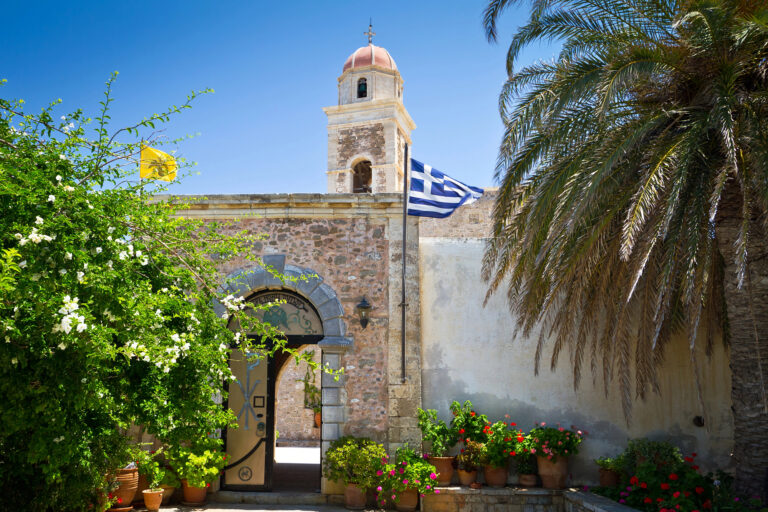The Curse of the Saracen Pirates
The Curse of the Saracen Pirates is a gripping chapter in Crete’s rich tapestry of history and legend. This narrative, steeped in the turbulent past of Mediterranean conflicts, resonates with themes of invasion, resistance, and the supernatural, vividly portraying Crete’s struggle against Saracen pirates.
Historical Context
- Saracen Raids in Crete
- Historical Raids: During the early medieval period, Crete experienced numerous invasions and raids by Saracen pirates, who were Muslim warriors engaged in naval warfare and piracy in the Mediterranean.
- Impact on Crete: These raids had a profound effect on the island, leading to periods of occupation, disruption of local life, and the fortification of coastal areas.
- The Rise of Piracy
- Strategic Importance: Crete’s strategic location made it a prime target for pirates seeking control over Mediterranean trade routes.
- Saracen Presence: The Saracens, originating from the Arab world, were known for their seafaring skills and conducted raids across the Mediterranean, including Crete.
The Curse Legend
- Origins of the Curse
- Retribution and Defense: The curse is said to have originated as a form of divine retribution or protection invoked by the Cretans against the invading Saracens.
- Supernatural Elements involved invoking supernatural forces or deities to protect the island and curse the invaders.
- Manifestations of the Curse
- Misfortunes on Pirates: The curse was believed to bring misfortune, shipwrecks, or even death to the Saracen pirates.
- Protection of the Island: On the flip side, it was seen as a protective charm for the island and its inhabitants.
Cultural and Societal Impact
- Symbolism in Cretan Culture
- Representation of Resistance: The curse symbolizes the resilience and indomitable spirit of the Cretan people in the face of external threats.
- Blend of Paganism and Christianity: Reflecting a mix of ancient pagan beliefs and Christian faith, the curse shows the syncretic religious landscape of medieval Crete.
- Oral Tradition and Storytelling
- Passing Down Through Generations: Tales of the curse have been passed down orally, becoming a part of the island’s folklore.
- Moral and Ethical Lessons: These stories often carry moral lessons about courage, faith, and the collective spirit of resistance.

Modern Perspectives
- Historical Interpretations
- Metaphorical Understanding: Modern interpretations often view the curse as a metaphor for Crete’s collective defiance against invaders.
- Historical Studies: Historians study these legends to understand the Saracen raids’ societal impact and the Cretans’ psychological warfare tactics.
- Cultural Significance
- Heritage and Identity: The legend of the curse forms a significant part of Crete’s cultural heritage, symbolizing the island’s historical struggles and victories.
- Tourist Attraction: Sites associated with these legends attract tourists keen on exploring Crete’s historical and mythological past.
Conclusion
The Curse of the Saracen Pirates, weaving together historical events and the realm of legend, is a testament to Crete’s rich and tumultuous history. It encapsulates the island’s enduring spirit of resistance against external threats and its reliance on the material and the mystical for protection. As a piece of Crete’s cultural and historical narrative, the legend continues to be a source of fascination, offering insights into the island’s past and its people’s unyielding resilience.







